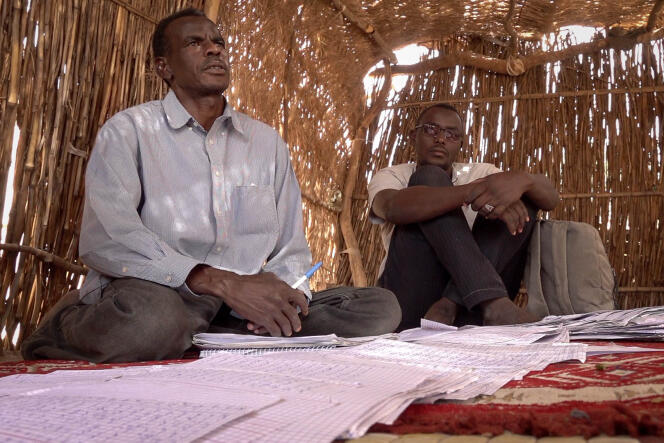
The five men were lined up in front of a wall barefoot, with their hands in the air. They barely had time to plead with their executioners before collapsing amid the fire of automatic weapons. Their blood formed a dark stain on the sandy ground. "This is what's been happening in Darfur. They asked them if they were from the Masalit ethnic group before killing them," said Abdulrashid Adam, closing his phone.
The killers wore the uniform of the Rapid Support Forces (RSF) of General Mohammed Hamdan Dagalo, known as Hemedti. For the past year, these forces have been battling the regular Sudanese army for control of the country, sparing no civilians.
In the chaos that has reigned in Sudan, it has been impossible to investigate or establish a precise death toll. The only available data, drawn up by the NGO Armed Conflict Location & Event Data Project (ACLED), have suggested 15,000 dead, but the figures could actually be three times higher.
Displaced people like Adam number over 8 million, according to the United Nations, which has expressed its suspicion that crimes against humanity are being committed in Darfur. The United States and the European Union have agreed that "ethnic cleansing" is underway. Survivors have readily spoken of a "genocide" targeting the Masalit community, the majority non-Arab ethnic group in the area.
The RSF − whose ranks have recruited heavily from the Janjaweed militia ("evil horsemen" in Arabic) − which was accused of genocide in Darfur by the US in the early 2000s, has been blamed for the violence. At the time, Adam had already had to flee to avoid death. Now he has once again become a refugee in neighboring Chad. Twenty years on, the terror is being spread via WhatsApp messages.
"They film their crimes themselves before posting them to social media," said the teacher, "because they're proud of what they're doing." His phone's memory has been filled up with a veritable catalog of atrocities: There are piles of corpses, women being raped and people buried alive, among other horrors. There have been so many videos that he's had to delete the oldest to make room for the new ones.
'Filling mass graves'
"There is so much evidence that disappears," said Abdelmoneim Juzur, a young Sudanese lawyer who has also taken refuge in Chad. Originally from Khartoum, he left the capital to document the violence perpetrated in Darfur, before becoming a victim in his own right. "As we fled, we had to cross the river. The RSF caught us by surprise and machine-gunned us from the bridge overlooking the valley. It was raining bullets, the water was red with blood and those who couldn't swim drowned. They called out to us for help, but there was nothing we could do. I can still hear their cries today," he said.
You have 62.04% of this article left to read. The rest is for subscribers only.